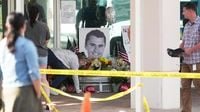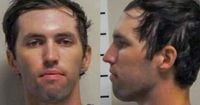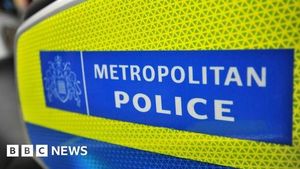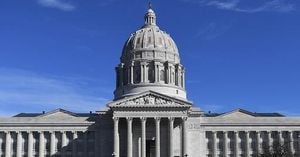The assassination of prominent conservative activist Charlie Kirk at Utah Valley University (UVU) on September 10, 2025, has sent shockwaves across the nation, igniting fierce debate about political violence, public safety, and the state of American discourse. The suspect, 22-year-old Tyler James Robinson of Washington, Utah, was apprehended within 33 hours of the shooting and now faces charges of aggravated murder, felony discharge of a firearm causing serious bodily harm, and obstruction of justice, according to reporting from the Associated Press and ABC News.
The day began like any other on the UVU campus, but by the afternoon, tragedy would strike. At 8:29 a.m. Mountain Time, Robinson arrived on campus in a gray Dodge Challenger, as detailed by Utah Governor Spencer Cox during a press conference. Surveillance footage showed Robinson changing into dark clothing before moving through stairwells and up to the roof of a campus building. At 12:05 p.m., a crowd of around 3,000 people gathered in the UVU Fountain Courtyard, eagerly awaiting Kirk’s appearance as part of Turning Point USA’s The American Comeback Tour. The anticipation was palpable, with supporters chanting Kirk’s name and the activist tossing hats into the audience before beginning his remarks.
Just 14 minutes into his appearance, at 12:23 p.m., Kirk was struck by a single shot fired from a nearby rooftop. According to Commissioner Beau Mason of the Utah Department of Public Safety, the shooter fled the scene by jumping off the building and escaping into a neighboring area. Video captured the chaos that ensued—Kirk was carried by six men to an SUV, which rushed him to Timpanogos Regional Hospital. Despite their efforts, Kirk succumbed to his injuries shortly thereafter.
As news of the shooting spread, reactions poured in from across the political spectrum. Senator Mike Lee, a Republican from Utah, expressed his condolences, while former President Donald Trump posted on Truth Social, “The Great, and even Legendary, Charlie Kirk, is dead. No one understood or had the Heart of the Youth in the United States of America better than Charlie. He was loved and admired by ALL, especially me, and now, he is no longer with us. Melania and my Sympathies go out to his beautiful wife Erika, and family. Charlie, we love you!” Tributes also came from Vice President JD Vance and former President Barack Obama, underscoring Kirk’s influence and the impact of his loss.
In the hours following the shooting, UVU sent out an alert that police were investigating and initially detained a person of interest, who was later released. Students were placed on lockdown as authorities combed the campus for clues. By 2:22 p.m., Orem Police announced that the suspect was still at large. The FBI quickly became involved, and by the next morning, had recovered what they believed to be the murder weapon—a high-powered bolt-action Mauser .30-06 caliber rifle wrapped in a towel—along with footwear impressions, a palm print, and forearm imprints for forensic analysis. The FBI also released images of the suspected shooter and offered a $100,000 reward for information leading to an arrest.
Key evidence in the case included engravings found on bullet casings, as detailed by Governor Cox. One casing was inscribed with, “notices bulges OWO what’s this?” while another read, “hey fascist! catch!” with various arrow symbols. A third casing bore the phrase, “oh bella ciao bella ciao bella ciao ciao ciao,” and another, “if you read this you are gay lmao.” Investigators also obtained chat messages attributed to Robinson, shared by a roommate with law enforcement.
Robinson’s arrest came after a dramatic sequence of events. His father recognized him in surveillance photos released by authorities and, after some initial resistance, persuaded him to surrender with the help of a youth pastor who is also a U.S. Marshals task force officer. This information was relayed to the FBI, leading to Robinson’s capture in Washington County, Utah, just over a day after the shooting. FBI Director Kash Patel confirmed Robinson’s arrest, stating, “The subject for the horrific shooting today that took the life of Charlie Kirk is in custody.”
Robinson, a third-year electrical apprenticeship student at Dixie Technical College in St. George, Utah, had previously attended Utah State University for a semester in 2021 and earned credits at Utah Tech University while in high school. According to family members and state records, Robinson had become “more political” in recent years but was not affiliated with any political party and had not voted in the past two general elections. His parents, both registered Republicans, described a recent family dinner in which Robinson expressed strong opposition to Kirk’s beliefs, reportedly calling Kirk “full of hate and spreading hate,” according to Governor Cox.
Authorities believe Robinson acted alone, though the investigation remains ongoing. He is being held at the Utah County Jail without bail, with formal charges expected to be filed in the coming week. No prior criminal cases involving Robinson have been found in state or federal court records.
The aftermath of the assassination has been marked by intense law enforcement activity and a sense of relief in the Orem community. As police continued to sweep the campus for evidence, residents who had been fearful in the days following the shooting began to venture out again. “I feel like there’s been this like really heavy, dark weight pressed over my heart and soul for the last two days,” UVU alumnus Creighton Baird told the Associated Press. “It’s pure relief.”
Charlie Kirk’s friends and coworkers have kept his podcast alive, livestreaming in his honor and sharing messages from supporters. On one broadcast, Blake Neff, a former writer for Tucker Carlson and a close associate of Kirk, recalled texting with him moments before the shooting. Neff described Kirk’s deeply held views on marriage and family, highlighting the personal loss felt by those closest to him.
The killing has also reignited debate about the dangers of political violence and the role of social media. Governor Cox, a long-time advocate for civility, made an impassioned plea for Americans—especially young people—to use this tragedy as a turning point. “This is our moment: Do we escalate or do we find an off-ramp?” Cox said. “It’s a choice.” He further warned, “Social media is a cancer on our society right now,” urging people to step away from their devices and focus on real human connection.
As the investigation continues, Utah officials have emphasized that Kirk’s assassination is not just an attack on one individual, but “an attack on all of us,” as Cox put it. The governor called the killing “an attack on the American experiment” and urged a new generation to “choose a different path.”
In the wake of this tragedy, the nation is left to grapple with questions about civility, security, and the future of its public discourse. The swift resolution of the case has brought some measure of closure to Kirk’s supporters and the UVU community, but the broader conversation about political violence in America is far from over.





